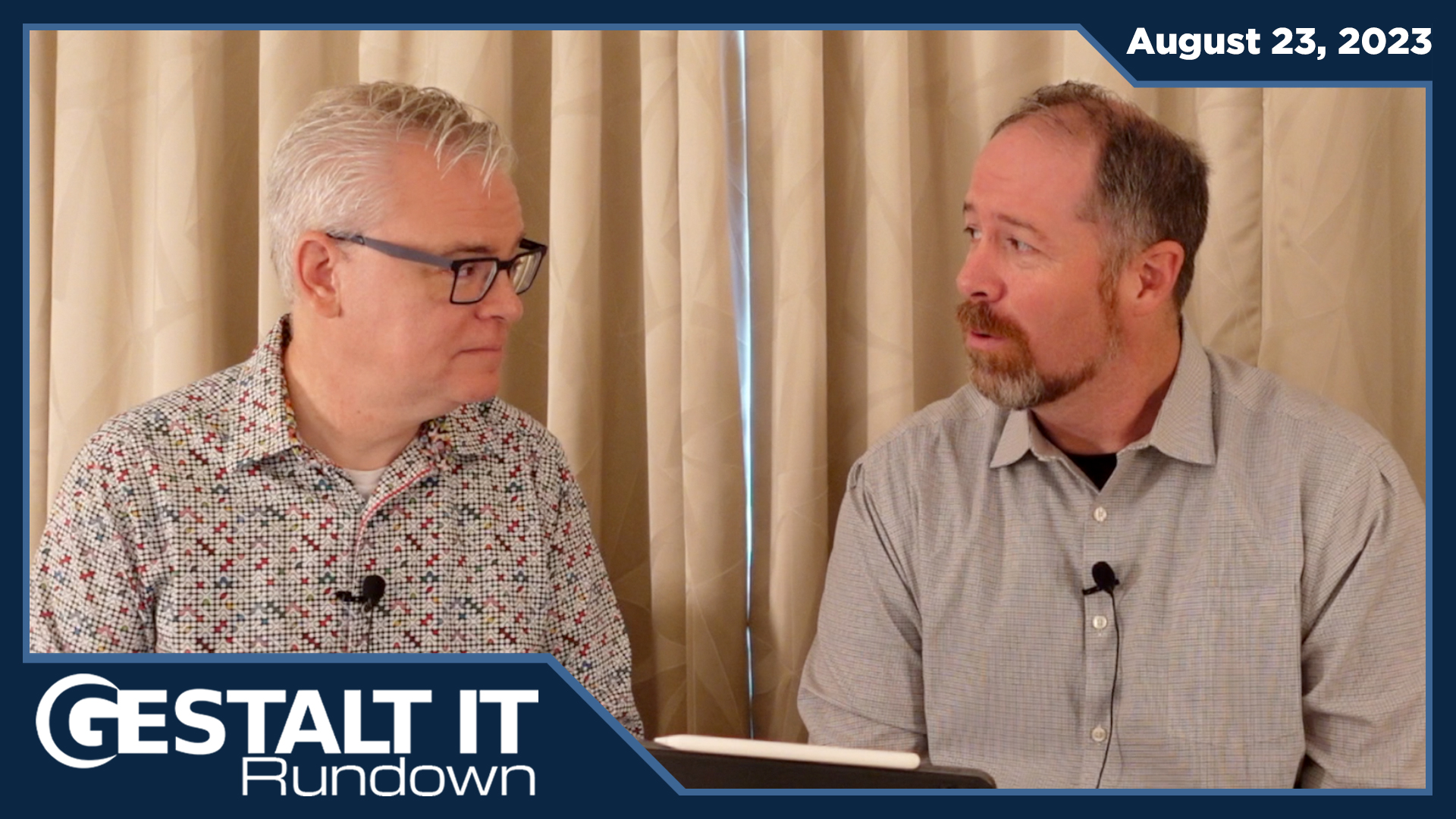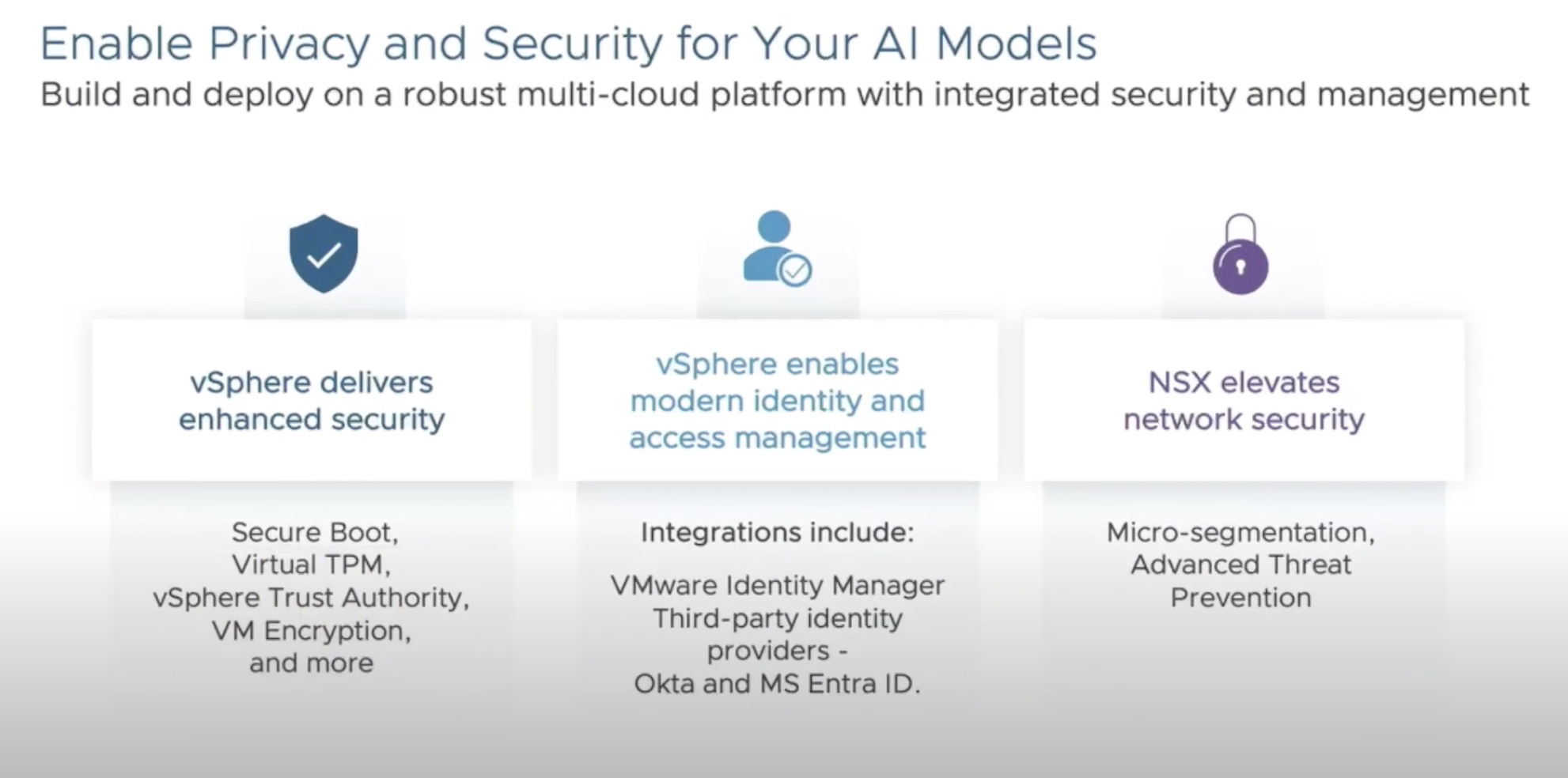News came out this week that Dell is reportedly looking to either spinoff or fully subsume VMware. This comes out of financial pressure the infrastructure giant is feeling, essentially having its remaining businesses seen as undervalued. What would be the impact on Dell in either scenario? Rich Stroffolino discusses which is more likely, and what the implications would be for the IT world.
Transcript of Checksum Episode 8: Is Dell Selling VMware?
If you’ve ever felt imposter syndrome, you know how consuming it can feel. Otherwise healthy relationships can suddenly become hard to tolerate if you’re feeling like you don’t belong to be there. You don’t have to stick around IT for very long to discover impostor syndrome is far from uncommon with people. But what happens when corporations get that feeling too? Last week we got to peek into how Dell Technologies might be experiencing it for themselves.
A report came out last week that Dell Technologies was considering doing… something with VMware. The Wall Street Journal reports that according to sources, Dell is considering either spinning off the 81% stake it has in the virtualization giant or perhaps buying up the rest of that stake to bring VMware fully into Michael Dell’s corporate embrace.
On a technical level, this seems like odd timing for me. VMware has never felt like a company looking for direction, but a few years ago, we could see the IT landscape changing significantly. The emergence of Kubernetes and containers, the increasing importance of the public cloud, and novel approaches to networking looked like they might disrupt the company. Being a big company with an extremely stable customer and revenue base, VMware was never going to react quickly to these trends. But over the past several years, they’ve built or bought solutions to operate in this new paradigm.
The company has worked with public cloud providers to launch things like VMware Cloud on AWS to let organizations extend vSphere into the cloud. AWS was the first cloud provider they worked with, but VMware now has similar (although technically distinct) solutions with GCP and Azure. These may not appeal to cloud-native organizations, but provide a natural path to the cloud for organizations not prepared to refactor and have maybe been burned by earlier cloud efforts.
VMware took a similar approach to Kubernetes, not exactly rushing to support this new force in infrastructure, but waiting until K8s emerged as the clear winner, then integrating it completely into vSphere 7 with VMware Tanzu Grid.
The company never plans to be on the bleeding edge, but does seem to have done a good job over the last several years of seeing where the industry is going, and seeing how they can create solutions to serve customers’ needs and keep themselves relevant.
All of which is to say that VMware in it’s current, “we’re a publicly-traded company that’s mostly owned by Dell” position seems to be doing quite well for itself, and presumably for Dell. So why shake things up?
Well, it turns out that Dell is reportedly feeling a little unappreciated in this arrangement. Dell’s current market cap sits around $36 billion, nothing to sneeze at for sure. But their stake in VMware is valued at around $50 billion. Part of this discrepancy comes down to stock performance. Since going public again in late 2018, Dell’s shares have hovered around or below the $50 mark, not much above its $45 dollar per share price when it went public again. This is as the Nasdaq index has grown over 50% in the same time.
Dell EMC’s data center business is a steady market for its corporate parent, but when paired with its relatively stagnant PC side, it isn’t seeing investors assign a lot of value to it. Especially compared to the value they can see in VMware. So financial pressures are causing Dell to weigh their options.
So what does a future look like with either an independent or a fully subsidiary VMware? If the pressure for this is coming from investors, a spinoff seems to make the most financial sense. Dell is still carrying a ton of debt, almost $50 billion, as a result of buying EMC a few years ago. A VMware spinoff would just about take that off the books, and free Dell to be more fiscally agile with its remaining businesses. The problem with this is that Dell has recently been quite aggressive in making a value pitch with deep VMware integration, particularly with the VxRail HCI lineup. While there’s no reason they couldn’t have a significant partnership with VMware to keep this going long term, not having them in any corporate fold limits the ability to coordinate and plan long-term on hardware and software integration. Having VxRail optimized for vSAN and Cloud Foundation is a win-win if your hardware gets you to sell more services. The benefit of the optimization is diminished with VMware as a separate entity.
So what about a wholly subsumed VMware? While this would more firmly establish Dell’s stock value in a lot of ways, it would also require a substantial increase in their already problematic debt load. Not nearly as big as merging with EMC or going public again, but I wonder what appetite investors have for carrying more debt with VMware. I think there would be a solid return on that given VMware’s recent performance, and I won’t pretend to understand the ins and outs of corporate finance to know how this would impact the stock value.
VMware as a full subsidiary of Dell would undoubtedly help Dell’s existing businesses in the short term, but I wonder if it would end up reducing the value of VMware that spurred this whole process to begin with. VMware has adoption across a number of hardware vendors, despite being mostly owned by EMC, and now Dell, for most of its corporate life. That unique position goes away if fully acquired by Dell. We’re already seeing companies like HPE pushing for more of a full-stack services approach to infrastructure, and a non-independent VMware probably accelerates that trend. That’s not an immediate impact by any stretch, VMware is far too pervasive, but it might be enough to cause vendors and public cloud providers to wonder if it might be better to go for their own stack rather than help out a competitor.
Ultimately I think the least likely outcome is that VMware’s position stays the same. Once investors think there’s money left on the table, it’s usually just a matter of time before things change. All reports say a decision on what Dell will do is still in very early stages, most likely coming well into 2021. We’ll be keeping an eye on it till then.




